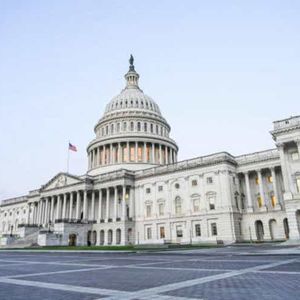Big news shaking up the intersection of traditional finance and the digital asset world! The US OCC , the primary regulator for national banks in the United States, has issued guidance that could fundamentally change how financial institutions crypto services are offered. If you’ve been wondering when your bank might finally offer easy ways to access digital currencies, this development is a significant step forward. What Did the US OCC Announce Regarding Banks and Crypto? In a notable shift from previous, more cautious stances, the Office of the Comptroller of the Currency (OCC) has clarified its position on national banks engaging with cryptocurrency. According to recent statements, the OCC confirms that banks operating under its charter have the authority to act upon customer requests to buy and sell cryptocurrency assets. Key takeaways from the OCC’s guidance include: Execution of Trades: Banks can facilitate the purchase and sale of cryptocurrencies when directed by their customers. This isn’t about banks trading on their own books speculatively, but rather acting as agents for their clients. Custody Services: The guidance reinforces banks’ ability to hold cryptocurrency assets in custody for customers, a position the OCC had previously indicated. Outsourcing Capabilities: Banks are explicitly allowed to partner with third parties to handle the technical aspects of custody and trade execution. This acknowledges the specialized infrastructure often required for digital assets. The OCC stressed that these activities must be conducted within the bounds of safety and soundness requirements. Essentially, while granting more freedom, the regulator still expects banks to manage risks appropriately. Why is This US OCC Stance Important for Trading Crypto? This regulatory clarity from the US OCC is crucial for the broader adoption and legitimization of trading crypto within traditional financial frameworks. For years, banks have been hesitant to dive deep into crypto services due to perceived regulatory ambiguity and risk aversion. This guidance provides a clearer path forward. Here’s why it matters: Increased Access: For everyday consumers and institutional investors, accessing crypto through their existing banking relationships could become significantly easier and potentially safer compared to navigating potentially less regulated crypto-native platforms. Institutional Confidence: More explicit permission from a major regulator like the OCC can boost confidence among financial institutions crypto departments, encouraging them to invest in the necessary infrastructure and compliance frameworks. Market Liquidity: As more traditional players enter the space, it could potentially increase liquidity in the crypto markets. Enhanced Security: Banks are accustomed to robust security and compliance protocols. Integrating crypto services into this environment could offer customers a higher level of security and consumer protection. This builds upon previous actions by the OCC, such as lifting a ban on banks providing cryptocurrency services and easing regulations that were seen as discriminatory against certain crypto-related businesses. The trend indicates a move towards integrating digital assets into the traditional banking system, albeit cautiously. What Challenges Do Banks Still Face with Crypto Regulation? While the OCC’s stance is positive for banks crypto integration, significant challenges remain. Navigating the complex landscape of crypto regulation involves more than just the OCC. Key challenges include: Regulatory Patchwork: Banks must contend with rules from multiple agencies, including the Federal Reserve, the FDIC, FinCEN, and potentially the SEC and CFTC depending on the nature of the digital asset. Harmonizing these different regulatory perspectives is complex. Compliance Costs: Implementing robust Anti-Money Laundering (AML) and Know Your Customer (KYC) procedures for crypto assets is technically demanding and expensive. Banks need systems to monitor transactions on public blockchains and identify associated risks. Technology Integration: Safely integrating blockchain technology and crypto asset management systems into existing banking infrastructure requires significant investment and technical expertise. Risk Management: Banks must develop sophisticated risk management frameworks to address the volatility of crypto assets, cybersecurity threats specific to digital wallets, and operational risks associated with new technologies. Talent Acquisition: Finding and retaining talent with expertise in both traditional finance and blockchain technology is crucial. Despite the OCC’s green light, the path for financial institutions crypto services is not without hurdles. Each bank will need to carefully assess its capabilities and risk appetite before offering extensive crypto services. Examples and Actionable Insights for Financial Institutions Following the OCC’s guidance, we are likely to see more banks exploring or expanding their crypto offerings. While specific examples of major banks launching extensive trading crypto services directly to retail customers are still emerging, many have already begun with: Custody Services: Offering institutional clients secure storage for digital assets. Blockchain Technology Exploration: Using blockchain for internal processes like payments or trade finance. Investment Products: Providing access to crypto investment products like futures or trusts (often through brokerage arms). For banks considering entering this space or expanding their footprint, actionable insights include: Understand the Regulatory Landscape: Go beyond the OCC and understand the expectations of all relevant regulators. Develop Robust Compliance Programs: Build out AML/KYC and transaction monitoring systems specifically tailored for crypto assets. Invest in Secure Technology: Prioritize secure custody solutions and reliable trading infrastructure, whether built in-house or outsourced to trusted partners. Educate Staff: Ensure employees understand the basics of crypto assets and associated risks. Start Small and Scale: Consider starting with limited offerings, such as custody for institutional clients, before moving into more complex areas like retail trading. The move by the US OCC is a signal that the regulatory environment is evolving, making it increasingly viable for financial institutions crypto strategies to move from theoretical discussions to practical implementation. What’s Next for Crypto Regulation and Banks? The OCC’s guidance is a significant piece of the puzzle but not the final word on crypto regulation for banks. Future developments will likely include: Further Clarity from Other Regulators: The Federal Reserve and FDIC are expected to provide more detailed guidance on specific crypto activities. Potential Legislation: Congress may introduce legislation to create a more unified framework for digital assets. International Coordination: Regulators globally are working on frameworks, and U.S. rules will need to consider international standards. Focus on Specific Asset Types: Regulations may differentiate more clearly between stablecoins, utility tokens, and other digital asset categories. The trajectory suggests a future where banks crypto services are more common, but the pace and nature of adoption will be heavily influenced by ongoing regulatory developments and how effectively banks manage the inherent risks of trading crypto . Conclusion: A New Era for Banks and Digital Assets The U.S. OCC’s confirmation that national banks can act on customer requests to buy and sell crypto assets marks a pivotal moment. It signals a growing acceptance of digital assets within the traditional financial system and provides a clearer regulatory runway for financial institutions crypto strategies. While challenges related to compliance, technology, and the broader regulatory landscape remain, this guidance is a strong indicator that accessing and trading crypto through established banking channels is becoming a tangible reality. This move by the US OCC doesn’t just affect banks; it has implications for investors, consumers, and the future direction of crypto regulation in the United States. To learn more about the latest crypto regulation trends, explore our article on key developments shaping financial institutions crypto adoption.















